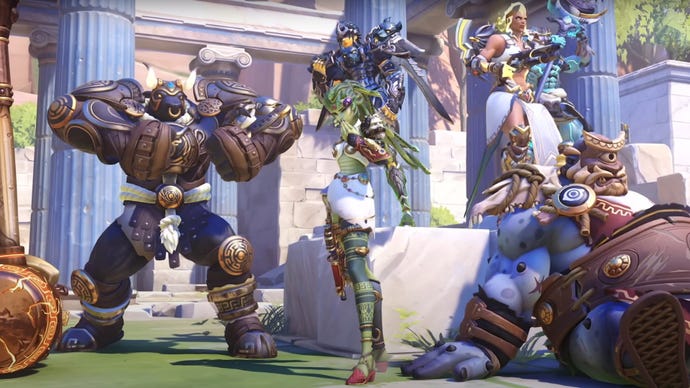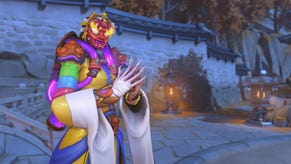Overwatch 2 will penalise players who are friends with cheaters, and monitor voice comms more heavily
Blizzard is ramping up its Overwatch 2 Defense Matrix initiative.
Overwatch 2 has shared an all-new update for its Defense Matrix Initiative, which is focused on curbing “gameplay sabotage, abusive chat, and cheating.”
In its latest update to the initiative, Blizzard has revealed that it’ll be monitoring voice communications more heavily, penalising players who team up with cheaters, and more.
The technology being used to monitor voice communications is a new voice-to-text transcription software and AI learning algorithms. This has already been rolled out on PC in select regions, has “proven to be exceptionally accurate and effective in identifying abusive chat and language.” Overwatch 2 is now working on silencing or suspending offending players where possible.
Blizzard also acknowledges that cheating in Overwatch 2 is a problem and has “actioned over 50,000 accounts” that it found to be cheating since the game’s launch. Starting in Season 3, Blizzard will identify players that willingly squad up with those regularly flagged as cheaters, and these players will also face account action.
It’s recognised that players who squad up with cheaters regularly are taking advantage, even if they are not directly cheating themselves. Boosting is a common issue in multiplayer games like Overwatch 2, and this leads to “unfair and imbalanced matches.” Blizzard will be issuing “severe suspensions for extended amounts of time, and in extreme cases, outright bans,” to those willingly playing alongside cheaters.
In addition to these changes, Overwatch 2 will also have improved protection for streamers. Blizzard recognises that stream sniping is no easy issue to fix, but in Season 3, it will be “introducing new streaming protection features that should be a huge step toward enabling content creators to share Overwatch 2 with their fans safely.”
Overwatch 2 players and content creators will be able to hide their BattleTag and the tags of players in their lobby. They’ll also be able to hide the queue time and even delay it for a random amount of time before Overwatch 2 begins matchmaking.
Last, but not least, Blizzard is encouraging players to report any disruptive or problematic behaviour in their matches. This helps the team identify issues and work to fix them. Blizzard also acknowledges that reporting on console isn’t as intuitive as it could be, and it’ll be taking steps to improve this soon.
What do you reckon to the latest update to Overwatch 2’s Defense Matrix initiative?






.jpg?width=291&height=164&fit=crop&quality=80&format=jpg&auto=webp)


